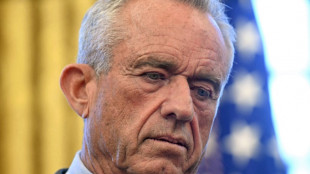OPEC+ weighs output decision, with a possible cut
The OPEC+ oil cartel is expected to agree on another small production increase Monday, though it could opt to cut output to lift prices that have tumbled over recession fears.
The 13 members of the Organization of the Petroleum Exporting Countries (OPEC) cartel, led by Saudi Arabia, and their 10 Russian-led allies will hold a regular meeting to adjust their quotas for October.
Oil prices soared to almost $140 a barrel in March after Russia invaded Ukraine, but they have since receded amid recession fears, Covid lockdowns in major consumer China and a possible Iran nuclear deal.
The main international benchmark, Brent, and the US contract, WTI, have since fallen under the $100 mark, fuelling speculation that OPEC+ could cut output to prop up prices.
"The group is expected to leave output targets unchanged but it's likely that a cut will be at least discussed which, if followed through on, would create more volatility and uncertainty at a time of considerable unease," said Craig Erlam, market analyst at OANDA trading platform.
"An output cut won't make them any friends at a time when the world is facing a cost-of-living crisis already and the group has failed to keep up with demand this year," said Erlam.
At its last meeting, OPEC+ agreed to a small increase of 100,000 barrels per day for September -- six times lower than its previous decisions.
OPEC+ cut oil production at the height of the Covid pandemic in 2020 to reverse a drastic drop in prices, but it began to increase them again last year.
The United States has pressed the cartel to step up production in order to tame energy prices that have sent inflation to a decades high, threatening to spark recessions in major economies.
But Saudi Energy Minister Abdulaziz bin Salman last month appeared to open the door to the idea of cutting output, which has since received the support of several member states and the cartel's joint technical committee.
He said "volatility and thin liquidity send erroneous signals to markets at times when clarity is most needed".
Oil prices rose by two percent on Monday, with Brent exceeding $95 per barrel while the US contract, WTI, reached around $89.
- Iran talks -
Matthew Holland, analyst at Energy Aspects research group, said a cut in production -- which would be the first since the drastic cuts made to cope with moribund demand during the coronavirus pandemic -- would come up at the next meeting in October.
Everything will depend on the progress of Iranian nuclear negotiations aimed at reviving a landmark agreement between Tehran and world powers that gave Iran sanctions relief in exchange for curbs on its nuclear programme.
Hopes for a deal, which would be accompanied by an easing of US sanctions notably on oil, have been revived recently.
However, Washington said Thursday that Tehran's latest response to a European Union draft was "unfortunately... not constructive".
Amena Bakr, an analyst at Energy Intelligence, warned against over-interpreting the Saudi energy minister's comments, saying only that "volatility is bad for the market".
"It's a message to all Western governments that have been intervening in the market and trying to manage the market" since the start of the war in Ukraine, she said.
The United States and its allies have released oil from their emergency reserves in efforts to curb prices.
And in an effort to curb Russia's war funding, the G7 group of industrialised powers agreed Friday to move "urgently" towards capping the price of Russian oil.
Moscow has warned that it will no longer sell oil to countries that adopt the unprecedented mechanism.
M.Scott--NG



